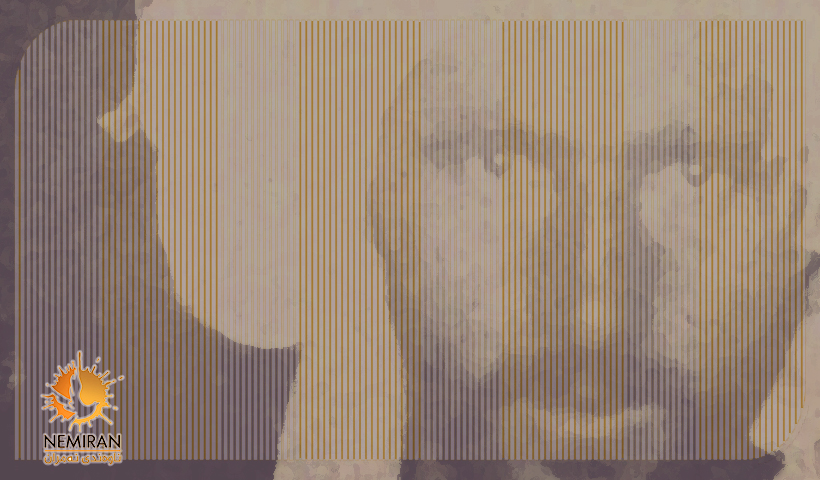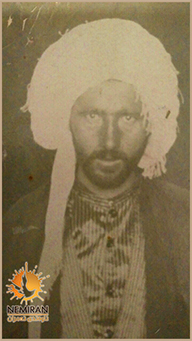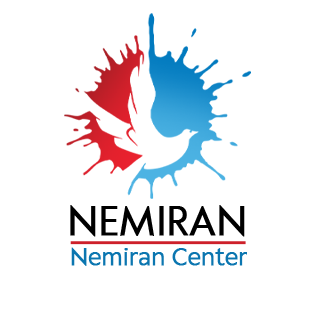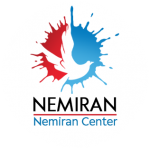Biography of Mullah Ibrahim Hekmat
“My son, you saw these fires that were lit on the top of the mountain. It is a sign that there is still hope outside of this prison. Be brave. Our horizon is bright.”
Mullah Ebrahim Hekmat was born in the village of Yaghoub Abad in the province of Baneh in 1280 Iranian Calendar (1901). His father, Mullah Abdul Karim Hekmant was a prominent cleric in Baneh where he had finished religious studies at Mullah Abdul Karim Modarres in the city of Sulaymaniyah/Iraq. Mullah Ebrahim learned to read and write from his father. His father sent him later to the cities of Saqqez, Bukan, Mahabad and afterwards to the Dar al-Ehsan Mosque in Sanandaj for religion studies. He continued his studiesin the cities of Marivan, Durwa, Halabja and Sulaymaniyah at the Mullah Abdul Karim Mosque. He lived in Sulaymaniyah during the reign of Sheikh Mahmoud Barzanji. There he stepped to the path of struggle for the liberation of Kurdistan. Then he returned to Durwa and Sanandaj and completed the courses of philosophy, mysticism and cognition there. He returned to his hometown as a clerical lecturer.
His well-known fellow students were the poet Qanee and Sheikh Osman Naqshbandi. On his return, a great celebration was held on for his reception. Many people were invited to the mosque. He lived and worked in some villages like Siuch, Njne, Zarwaw, and Qurucha and Zanbil. He returned later to Siuch. I was a little child at that time and I remember the villages of Zanbil and Qurucha to some extent.
He was a representative of Kurdistan Democratic Party in the city of Baneh during the era of Kurdistan Republic. Kurdistan was invaded by the central government of Iran; thenew established Kurdistan Republic was defeated. Mullah Ebrahim lived in the underground for some time so as not to be persecuted by the Iranian government. After the general amnesty, he returned to the village of Siuch. One of his students, Mullah Rahim Verdi, who was an accountant for the Kurdistan Democratic Party during the Republic of Kurdistan, he still had money from that time. He sought advice from my father about that money saying that the feudals of the region intended to confiscate the money. My father sent Mullah Rahim Verdi to Sitak, 3 km from Sulaymaniyah. Sheikh Latif, son and crown prince of the Kingdom of Kurdistan, resided there. Several Kurdish revolutionaries, Ahmad Tawfiq and Ghani Blurian, had taken refuge there. He handed over all the money to them as a donation for the Kurdish revolution.
During the years of land reform, my father encouraged the farmhands of the village of Siuch to divide the lands of the Khans among themselves. The landlordswere very upset about this. One night, the landlord of the village sent his armed men to him with the message that he will be killed, if he does not leave the village as soon as possible. 35clericals along with the prayer leader and Shaykh al-Islam came from the city of Baneh to the village to reconcile my father with the landlord. The effort was withoutresult. After a while, my family moved to Baneh. We were accommodated by Mullah Mohammad Heydari in his house and lived in a room without rent. My father stopped teaching and practicing the job as clerical. He lived in poverty. My brothers helped my parents and their three other children. But he never bowed his head and finally died steadfast.
The social security in Kurdistan gradually deteriorated after Khomeini seized power in 1979. The jihad command for the invasion on Kurdistan was ordered by Khomeini. Widespread military attacks and a wave of executions and indiscriminate killings began. Mullah Ebrahim and his family took refuge in a remote village for a time, during the Second Kurdistan War, when most people fled to the villages defenseless for fear of war and its aftermath.

One day, Mullah Ebrahim was on foot on the way to Baneh. A checkpoint of the Revolutionary Guards had been set up near Baneh. The commander of that station was a person about twenty one years old named Khademi. Khademi’s two brothers had been killed in the first war in Kurdistan, known as three month War.For this reason, he was designated as the commander of the regional corps at that young age, so that he took revenge, oppressed and killed Kurds arbitrarily. Mullah Ebrahim arrived at the checkpoint and Khademi was there. He started questioningmy father:
-Why don’t you tell these unbelievers to give up?
– Which unbelievers?
– Komala and Democratic Party of Iranian Kurdistan.
– Where are you from?
– I’m from Najafabad of Isfahan.
– I have a suggestion for you, return to your city. Here is Kurdistan; we know better how to manage our affairs. These parties you are talking about are more Muslim than you yourself and Khomeini.
Their conversation ended a little hastily between them and my father returned home. He was shortly at home, Khademi and a large number of guards came surprisingly and arrested my 80-year-old father. I got the news too late. When I found out about his arrest, I went to Baneh immediately. It was a Friday afternoon when I visited my father at the Baneh barracks. I told my father, “Let me talk to Montazeri about your situation, he is the second highest ranking person in the country. He is a close friend of yours. He always called you as Master. Or let me call Khalkhali. He was your student in this city. He studied the subjects of philosophy, mysticism and Rumi with you. Maybe they can help you and save you from these oppressors.”
I was surprised that my father reminded me frankly, “No one is allowed to contact any of them, especially Khalkhali who has now become a hangman and a bloodthirsty.”
The same day I was informed by some sympathetic people that I had to leave the city as soon as possible. It is worth mentioningthat I was a member of the city council and the deputy of Sheikh Jalal Hosseini, when the city was in the hands of the Peshmerga. Someone I was opposed to joining the council, had become a mercenary of the regime after the Revolutionary Guards had taken over the city. He had told that it was time to take revenge and get me arrestedby the guards. I had not seen my mother for a long time; I went to stay with her that night. I wanted to leave early the next day, but the security forces broke into the house in the middle of the night and arrested me.
There was a large crowd of the Revolutionary Guards in the prison cells. 14 persons were detained in the cell, where one could hardly lie down. This was a detention center. Those who were fined would be released if they were able to pay the fine. Other persons, who were arrested for political reasons, were transferred to the barracks.
I was transferred to the barracks prison that day. They showed me the cell where my father was imprisoned. As I was approaching the cell, my father’s cellmates were silent as soon as they saw me.My father, who was behind the others, asked in his old voice: “Who is this arrested person?” No one answered. It was a dead silence. Hestood up heavily to see what was going on. My father saw me, his knees weakened and he could barely stand on his feet. He could not hide his apprehension. He soon overcame his anxiety and regained his normal state. After some seconds he started to encourage me: ”Even though here is prison, but there is nothing wrong to experience it. The hard days of prison make you more mature and more resilient to the hardships of life. You understand that life is not all peace and comfort and it has hard days.”

I asked himfor what accusationhe was arrested. He replied:
“Someone reported that I allegedlyhad ordered jihad against the Islamic Republic in the mosque of the community. They imputedthat I onceexpressed that anyone who defends his homeland is a martyr and that is his privilege. On the other hand, they added one of my letters to my file once I wrote to other mullahs in which I insulted the Islamic Republic. The Revolutionary Guards have gotten this letter and they added it to the file and used it against me.A Shiite cleric named Safdari has been charged with my case and to interrogate me. He confronted me with this issue. I told him that Montazeri, who is the second person in the country, either is not courageous enough or he does not dare to discuss with me. Now you have been sent for my interrogation. You, a little child, how do you allow yourself to talk to me like this?Then I cursed Khomeini and the Islamic Republic.”
I told my father: “It is no good at all speaking sharply in this place. They don’t understand logic, they make trouble for you.”
He replied, “My son, I have lived my life. What may I expect from you young people, if I speak softly to them at this age? No, I have to be brave in the face of these tyrants so that you learn not tobow downto them. ”He convinced me with these words.
My father had trouble breathing and could not breathe well. A person named Ostad Ahmad Fathi fellow inmate; he was an architect. He had vision problems. Doctors had diagnosed that he should have eye surgery as soon as possible. Another person named Sadegh Sahranavard had kidney stones and had to undergo surgery immediately. It was the afternoon of 25/5/1359 (16/8/1980). We looked out through the seam of the cell window and saw that the mountains were lit by fire (1). Our hearts opened and we were delighted enormously. Suddenly, the guards opened the cell door and called out the names of the three men. The guards told themthat they would bring them to the doctor and would be releasedafterwards. They were told to take their belonging along. My father told me while he was leaving: “My son, you saw these fires that were lit on the top of the mountain. It is a sign that there is still hope outside of this prison. Be brave. Our horizon is bright.”
This was our last meeting and I did not know that it would be our last farewell. It was reported next day that they had been transferred to the Baneh Guards Corps and that they had all been executed.
I got the message two days after the execution that one of my relatives had come to the jail to meet with me. I was surprised; it was not a visiting day. I went to the meeting room. My mother was there. She told me that the guards had gone to our house and handed over my father’s bloody bullet-riddled clothes to her. My 39 years old sister was there and was holding her baby in her arms. She died of a stroke outright when she saw my father’s bloody clothes. The guards had threatened my family not to hold a funeral and had ordered them to leave the city immediately. They had threatened to torture me under the worst conditions and to shoot me, if they would refuse to leave the city.
My mother had accepted to leave Baneh under the condition to visit me first to make sure that I was alive. This was the reason for her visit that day. She brought a new white shirt along and told me: “My son, wear this shirt. They shouldn’t feel that you are mourning. They will be happy to see you mourning. Let them know that giving a martyr to our land and nation is a great honor. You must shave your beard so that they do not see the sadness on your face.”
I also promised her that and I have kept my word to this day. I never let the enemy be happy to see my grief.
The souls of the martyrs of Kurdistan and their memory may be cherished.
Author: Dr. Taher Hekmat, son of Martyr clerical professor Ebrahim Hekmat
(1) 25/6/1324 Iranian Calendar (16. September 1945) is the anniversary of the founding of the Democratic Party of Iranian Kurdistan. Kurdish people celebrate this day. By lighting fires in the mountains around the cities, they send the message that the struggle for the liberation of Kurdistan from the yoke of the occupiers continues.

